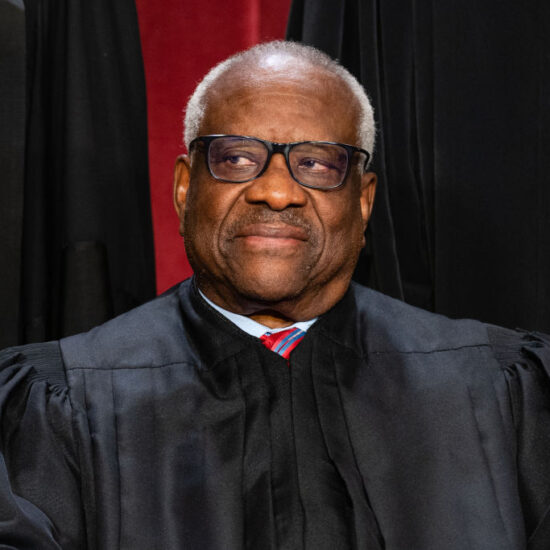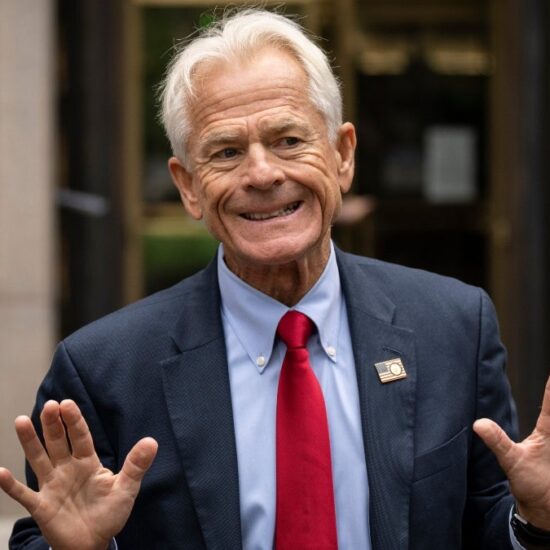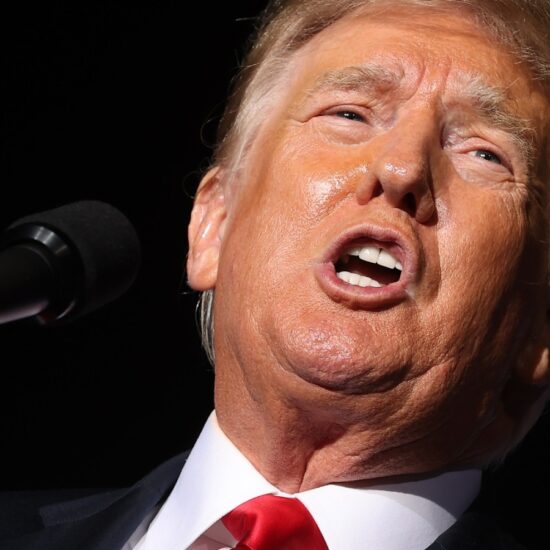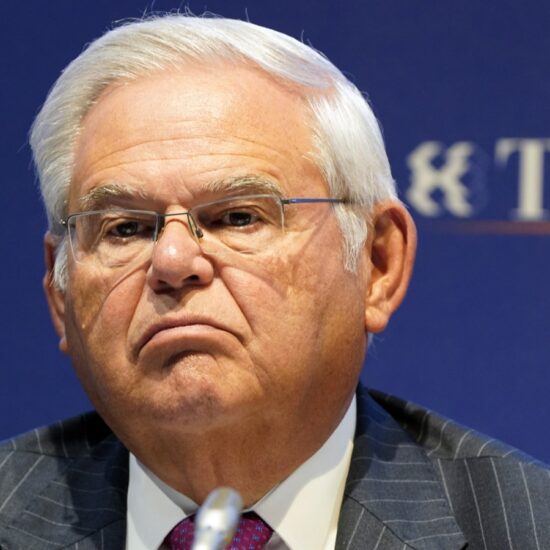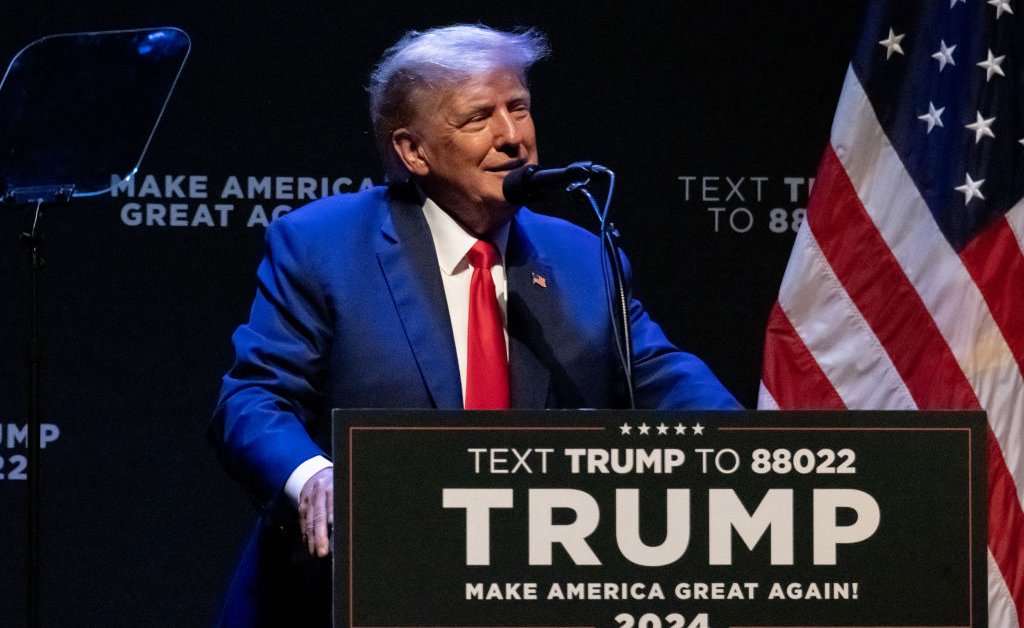
Former President Donald Trump says his indictment by the Manhattan District Attorney for alleged hush money payments is imminent, claiming on Saturday that it could come as early as Tuesday.
District Attorney Alvin Bragg has not commented on Trump’s claims, and a spokesperson for Trump later clarified that Trump had received no notification an indictment was imminent.
However, Trump’s comments highlight the possibility that he could face arrest for the first time. Trump was invited to testify before a grand jury in early March. The offer to testify, which Trump declined, is required before any indictment.
The investigation centers around cash paid to pornographic film star Stormy Daniels in 2016 before Trump’s election win. Daniels says she had an affair with Trump; Trump denies this.
As part of Bragg’s investigation, Trump could face charges for falsifying business records when he allegedly reimbursed his then-personal attorney Michael Cohen for paying off Daniels. The hush-money deal, allegedly crafted weeks before his presidential win, could also put Trump in jeopardy of violating campaign finance laws.
The prospect of Trump’s arrest—the first in history for a former president—raises questions about the process Trump would be subject to during his arrest and trial—including whether any extraordinary measures would be taken given his unique status.
TIME spoke with legal experts about each step of the process, and how Trump’s indictment might proceed differently from run-of-the-mill white-collar crime cases.
The arrest
The charges Trump would likely face are for white-collar crimes regarding financial dealings, and given their non-violent nature, defendants in such cases typically “self-surrender,” skipping public perp walks.
Shanlon Wu, a white-collar defense attorney and former federal prosecutor, tells TIME that defense councils typically receive notice when their white-collar clients are being indicted. “You would make an appointment basically, to bring your client in to be booked and fingerprinted,” Wu says.
Wu adds that Trump’s lawyers may even seek some special arrangements, given he’s a former president, to avoid walking through the front entrance of the courthouse or police station in an attempt to be more discreet. On Friday, Trump’s attorney said that if indicted, Trump would not resist arrest and that they would follow normal procedures. “There won’t be a standoff at Mar-a-Lago with Secret Service and the Manhattan DA’s office,” Joe Tacopina told the New York Daily News.
If indicted, Trump would have to go through the same process, where he would be booked into jail, finger-printed, and a “mug shot” taken. However, given Trump’s substantial ties to the community, especially his ongoing 2024 presidential campaign, the judge likely wouldn’t deem him a flight risk and would probably immediately release him on bond, former federal prosecutor Renato Mariotti tells TIME.
In a post on Truth Social on Saturday morning, Trump claimed his arrest was imminent and called for his supporters to protest, citing “illegal leaks” from a “corrupt” and “highly political Manhattan district attorney’s office.”
Security measures
Law enforcement agencies at the local, state and federal level have been working to prepare the Manhattan Criminal Court for the possibility that Trump is indicted, NBC News reported Friday, citing anonymous sources. The New York Police Department, New York State Court Officers, the Manhattan District Attorney’s Office, the Secret Service, and the FBI are all involved, according to NBC.
Wu doesn’t anticipate many unusual logistics in the procedures if Trump is indicted, but believes that security would be heightened—similar to measures for other high-profile political figures or celebrities. “Sometimes we see a huge flood of cameras and reporters at the front of the courthouse,” he says. “With a former president, the Secret Service would probably have some screening mechanism for that, because otherwise, you don’t know who’s in the crowd.”
“Court security may also set up a sort of a barrier zone, meaning there’s going to be ‘X’ amount of feet, where people can walk through and there won’t be any reporters sticking microphones in their faces,” Wu adds that there would probably be limits to how many people are allowed in the courtroom.
Complications
If Trump is indicted and charged, the case would eventually move on to jury selection, which could be a lengthy and exhausting process.
“The majority of people in the jury pool would have some opinions about Donald Trump,” former federal prosecutor Renato Mariotti tells TIME. “Most defendants, even if they’re famous, are often not known by prospective jurors or they don’t have a certain opinion about that person. I think it’s safe to say that Donald Trump is different.”
During jury selection the prosecution and the defense use voir dire questioning, meaning they can ask each prospective juror questions about their qualifications and knowledge of the case, in an attempt to ensure fair and impartial jurors.
Wu thinks a judge could opt to issue a so-called “gag order,” restricting all parties from talking to the press. “This is gonna get so much publicity anyway if he’s charged,” Wu says. “It’d be very hard to find jurors who haven’t been exposed to the news.” Although rarely used, one method to combat this is for a judge to sequester jurors, limiting their exposure to outside influence or information.
“If this case is still ongoing, during his run for president, you could face a very unprecedented and challenging situation,” Mariotti says. “[Trump] would be subject to a criminal enforcement action by a state, which would pose a lot of serious constitutional quandaries.”
More Must-Reads From TIME









